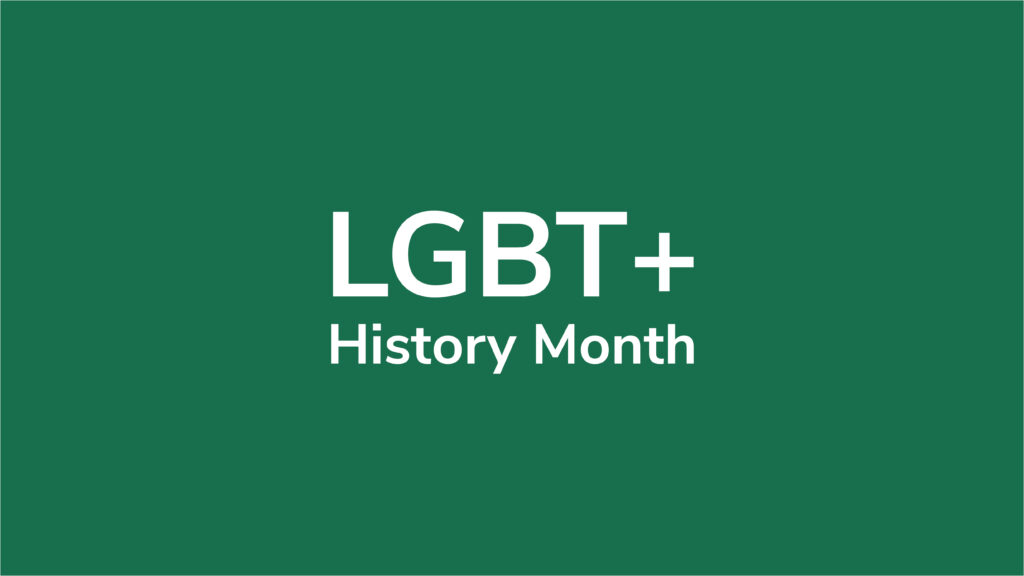
10 ways to create an inclusive science community for LGBT+ people
February is LGBT+ History Month. It is a timely opportunity for us to confront prejudice and build recognition and support for people who are lesbian, gay, transgender, bisexual, queer, intersex, and asexual (LGBT+) in science.
Science professionals who identify as LGBT+ are more likely to experience career limitations, harassment, and professional devaluation than their peers.
At the National Centre for Atmospheric Science (NCAS), embracing diversity and supporting staff wellbeing and success – in all its senses – is a keystone for excellent environmental research.
For our staff community and network of colleagues, we have listed 10 ways you can create a more LGBT+ inclusive research environment this month and in the future:
Familiarise yourself
Take some time to check out the Quick Guide to LGBT+ History Month by enei (NCAS staff are members of the enei). And, you can familiarise yourself with words and phrases you are unfamiliar with by referring to the Stonewall glossary of terms.
Keep up-to-date
Actively seek out LGBT+ content to better understand new concepts, perspectives and ideas. This might involve following LGBT+ topics in the news and keeping up to date on the current issues for the LGBT+ community. Again, the Stonewall Blog is a good source of information.
Stay informed
Find out how LGBT+ issues relate to the Science, Technology, Engineering and Maths sector. Look up ways to make laboratories, conferences, lecture halls, and meetings safe and inclusive spaces for scientists who are LGBT+. Some of these articles are a good starting point:
Use inclusive terms
Brush up on, and embrace, inclusive language and gender pronouns.
Take a person-centred approach
Be guided by the terms people use to describe themselves, avoid irrelevant references to a characteristic, and take an individualised approach – we are all different and we are not defined by one aspect of who we are. If you make a mistake, apologise, correct it, learn from it and move on.
Find role models
Check out 500 Queer Scientists – a visibility campaign for LGBT+ people and their allies working in STEM and STEM-supporting jobs. Positive role models play an important part in nurturing diversity. It can be difficult to believe you can succeed, until you see people like yourself in the positions you are aspiring for. So far, the campaign has over 1800 stories and counting.
Build an online network
Build an online community that represents a range of diverse perspectives. By diversifying your social media feed, you can help to elevate voices who are often unheard and support a more representative space online.
Gestures such as following and resharing content will boost the reach of a researcher’s profile. At the same time, you’re likely to uncover different experiences that can challenge or inform your own.
Your activity on social media can play a small part in fostering an inclusive research environment. You could start by following Pride in STEM, and go from there.
Attend events
Get involved with community events or learning opportunities. There’s always a host of engaging and welcoming activities being led by, or related to, the LGBT+ community. Coming up for LGBT+ History Month, the enei is running an online session for members (which NCAS staff are) on 20 February 2024, 11am – 12pm, called Journey Through LGBT+ History and Inclusion – register to attend.
Consider wellbeing
Keep in mind that your colleagues who are LGBT+ are more likely to experience limitations, harassment, and devaluation. Society’s attitudes towards people who are LGBT+ can be negative and harmful, and the rights of some people are being threatened.
We’ve made a list of 7 ways you can support the LGBT+ community.
Raise concerns
If you feel concerned for yourself or a colleague, and would like a supportive conversation about workplace discrimination or wellbeing, please speak to your line manager or an Equality, Diversity and Inclusion (EDI) representative.
At NCAS, our EDI representatives are Lisa Banton (Head of People, Workforce Development, and EDI) and Jacqui Hamilton (Science Director and EDI Champion on the NCAS Management Board). Contact Lisa by email at lisa.banton@ncas.ac.uk and Jacqui by email at jacqui.hamilton@ncas.ac.uk.
If you are an NCAS member of staff, you are also encouraged to complete our Equality, Diversity, and Inclusion 2024 Survey by Monday 26 February 2024.
